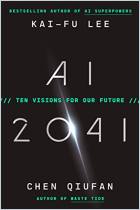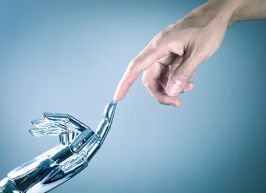Melden Sie sich bei getAbstract an, um die Zusammenfassung zu erhalten.

Melden Sie sich bei getAbstract an, um die Zusammenfassung zu erhalten.
Kai-Fu Lee
What China Can Teach the U.S. About Artificial Intelligence
Visionary research is no longer the most important element of progress.
The New York Times, 2018
Was ist drin?
As AI development shifts from foundational research to implementation, China has a structural advantage over the United States.
Recommendation
Since about 2010, the field of artificial intelligence (AI) has shifted from pure R&D into a phase of implementation. The United States, which has played a central role in paving the way for AI, should now pay attention to how China is addressing this challenge. With different strengths that play to different phases of technological development, each nation has the potential to learn something from the other.
Summary
About the Author
Kai-Fu Lee is a venture capitalist and former artificial intelligence researcher. He is chairman and chief executive of Sinovation Ventures, and the author of the A.I. Superpowers: China, Silicon Valley, and the New World Order.






















Comment on this summary